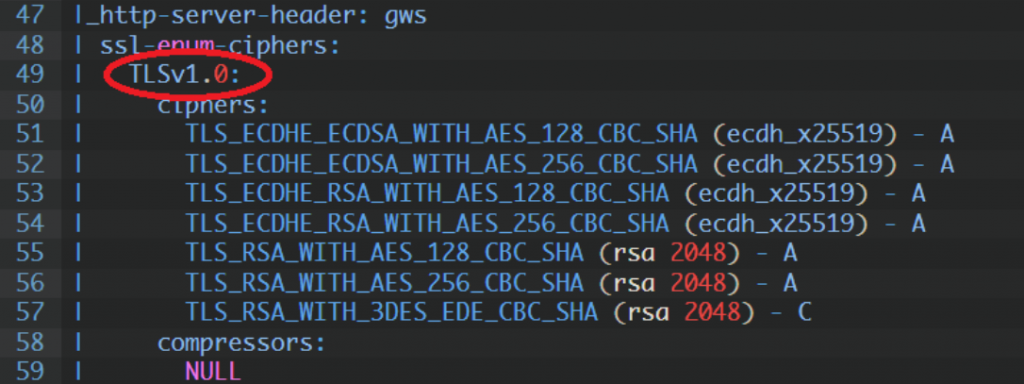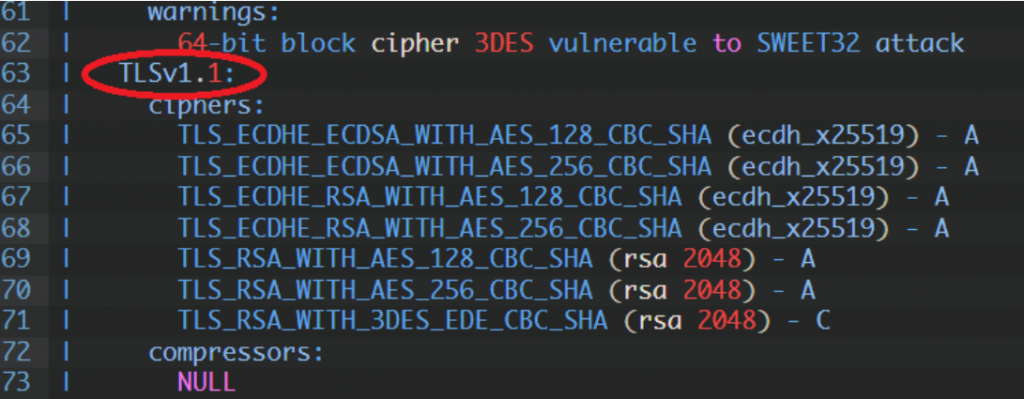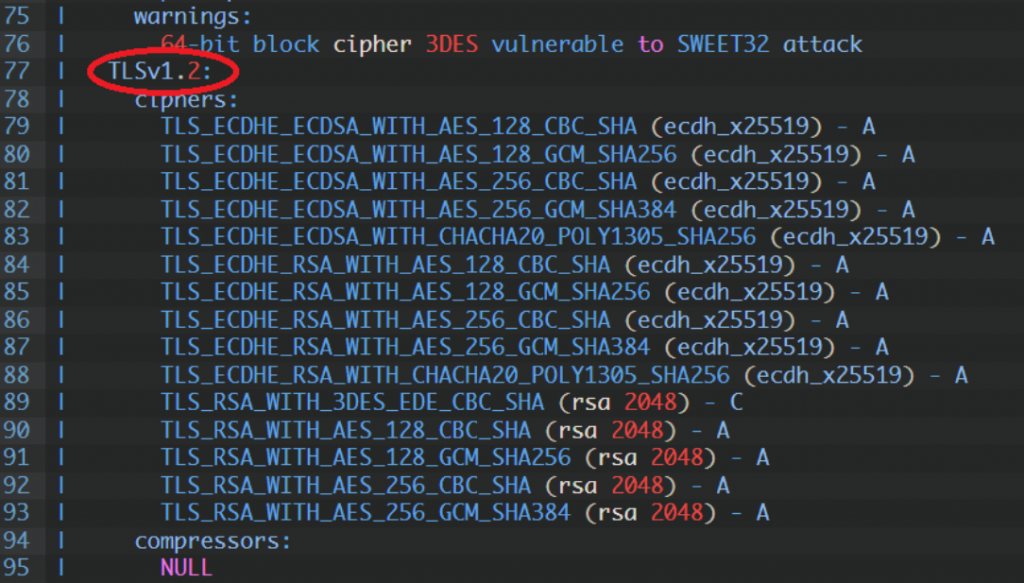In debian 11:
|
1 2 |
# cat /etc/issue Debian GNU/Linux 11 \n \l |
Nmap is one of more powerfull tools to scaning network.
We start the installation on debian as root:
|
1 2 3 4 5 6 7 8 9 10 11 12 13 14 15 16 17 18 19 |
# apt install nmap Reading package lists... Done Building dependency tree... Done Reading state information... Done Suggested packages: ncat zenmap The following NEW packages will be installed: nmap 0 upgraded, 1 newly installed, 0 to remove and 0 not upgraded. Need to get 1,899 kB of archives. After this operation, 4,617 kB of additional disk space will be used. Get:1 http://ftp.debian.org/debian bullseye/main amd64 nmap amd64 7.91+dfsg1+really7.80+dfsg1-2 [1,899 kB] Fetched 1,899 kB in 0s (5,967 kB/s) Selecting previously unselected package nmap. (Reading database ... 65055 files and directories currently installed.) Preparing to unpack .../nmap_7.91+dfsg1+really7.80+dfsg1-2_amd64.deb ... Unpacking nmap (7.91+dfsg1+really7.80+dfsg1-2) ... Setting up nmap (7.91+dfsg1+really7.80+dfsg1-2) ... Processing triggers for man-db (2.9.4-2) ... |
and than we can check for example google.com:
|
1 2 3 4 5 6 7 8 9 10 11 12 13 14 15 16 17 18 19 20 21 22 23 24 25 26 27 28 29 30 31 32 33 34 35 36 37 38 39 40 41 42 43 44 45 46 47 48 49 50 51 52 53 54 55 56 57 58 59 60 61 62 63 64 65 66 67 68 69 70 71 72 73 74 75 76 77 78 79 80 81 82 83 84 85 86 87 88 89 90 91 92 93 94 95 96 97 98 99 100 101 102 103 104 105 106 107 108 109 110 111 112 113 114 115 116 117 118 119 120 121 122 123 124 125 126 127 128 129 130 131 132 133 134 135 136 137 138 |
~# nmap -sV --script ssl-enum-ciphers -p 443 google.com Starting Nmap 7.80 ( https://nmap.org ) at 2021-09-30 09:58 CEST Nmap scan report for google.com (142.250.179.78) Host is up (0.0045s latency). Other addresses for google.com (not scanned): 2a00:1450:4007:80c::200e rDNS record for 142.250.179.78: par21s19-in-f14.1e100.net PORT STATE SERVICE VERSION 443/tcp open ssl/https gws | fingerprint-strings: | GetRequest: | HTTP/1.0 200 OK | Date: Thu, 30 Sep 2021 07:58:20 GMT | Expires: -1 | Cache-Control: private, max-age=0 | Content-Type: text/html; charset=ISO-8859-1 | P3P: CP="This is not a P3P policy! See g.co/p3phelp for more info." | Server: gws | X-XSS-Protection: 0 | X-Frame-Options: SAMEORIGIN | Set-Cookie: CONSENT=PENDING+585; expires=Fri, 01-Jan-2038 00:00:00 GMT; path=/; domain=.google.com; Secure | Alt-Svc: h3=":443"; ma=2592000,h3-29=":443"; ma=2592000,h3-T051=":443"; ma=2592000,h3-Q050=":443"; ma=2592000,h3-Q046=":443"; ma=2592000,h3-Q043=":443" ; ma=2592000,quic=":443"; ma=2592000; v="46,43" | Accept-Ranges: none | Vary: Accept-Encoding | <!doctype html><html itemscope="" itemtype="http://schema.org/WebPage" lang="fr"><head><meta content="text/html; charset=UTF-8" http-equiv="Content-Typ e"><meta content="/images/branding/googleg/1x/googleg_standard_color_128dp.png" itemprop="image"><title>Google</titl | HTTPOptions: | HTTP/1.0 405 Method Not Allowed | Allow: GET, HEAD | Date: Thu, 30 Sep 2021 07:58:21 GMT | Content-Type: text/html; charset=UTF-8 | Server: gws | Content-Length: 1592 | X-XSS-Protection: 0 | X-Frame-Options: SAMEORIGIN | Alt-Svc: h3=":443"; ma=2592000,h3-29=":443"; ma=2592000,h3-T051=":443"; ma=2592000,h3-Q050=":443"; ma=2592000,h3-Q046=":443"; ma=2592000,h3-Q043=":443" ; ma=2592000,quic=":443"; ma=2592000; v="46,43" | <!DOCTYPE html> | <html lang=en> | <meta charset=utf-8> | <meta name=viewport content="initial-scale=1, minimum-scale=1, width=device-width"> | <title>Error 405 (Method Not Allowed)!!1</title> | <style> |_ *{margin:0;padding:0}html,code{font:15px/22px arial,sans-serif}html{background:#fff;color:#222;padding:15px}body{margin:7% auto 0;max-width:390px;min-h eight:180px;padding:30px 0 15px}* > body{background:url(//www.google.com/images/errors/robot.png) 100% 5px no-repeat;padding-righ |_http-server-header: gws | ssl-enum-ciphers: | TLSv1.0: | ciphers: | TLS_ECDHE_ECDSA_WITH_AES_128_CBC_SHA (ecdh_x25519) - A | TLS_ECDHE_ECDSA_WITH_AES_256_CBC_SHA (ecdh_x25519) - A | TLS_ECDHE_RSA_WITH_AES_128_CBC_SHA (ecdh_x25519) - A | TLS_ECDHE_RSA_WITH_AES_256_CBC_SHA (ecdh_x25519) - A | TLS_RSA_WITH_AES_128_CBC_SHA (rsa 2048) - A | TLS_RSA_WITH_AES_256_CBC_SHA (rsa 2048) - A | TLS_RSA_WITH_3DES_EDE_CBC_SHA (rsa 2048) - C | compressors: | NULL | cipher preference: server | warnings: | 64-bit block cipher 3DES vulnerable to SWEET32 attack | TLSv1.1: | ciphers: | TLS_ECDHE_ECDSA_WITH_AES_128_CBC_SHA (ecdh_x25519) - A | TLS_ECDHE_ECDSA_WITH_AES_256_CBC_SHA (ecdh_x25519) - A | TLS_ECDHE_RSA_WITH_AES_128_CBC_SHA (ecdh_x25519) - A | TLS_ECDHE_RSA_WITH_AES_256_CBC_SHA (ecdh_x25519) - A | TLS_RSA_WITH_AES_128_CBC_SHA (rsa 2048) - A | TLS_RSA_WITH_AES_256_CBC_SHA (rsa 2048) - A | TLS_RSA_WITH_3DES_EDE_CBC_SHA (rsa 2048) - C | compressors: | NULL | cipher preference: server | warnings: | 64-bit block cipher 3DES vulnerable to SWEET32 attack | TLSv1.2: | ciphers: | TLS_ECDHE_ECDSA_WITH_AES_128_CBC_SHA (ecdh_x25519) - A | TLS_ECDHE_ECDSA_WITH_AES_128_GCM_SHA256 (ecdh_x25519) - A | TLS_ECDHE_ECDSA_WITH_AES_256_CBC_SHA (ecdh_x25519) - A | TLS_ECDHE_ECDSA_WITH_AES_256_GCM_SHA384 (ecdh_x25519) - A | TLS_ECDHE_ECDSA_WITH_CHACHA20_POLY1305_SHA256 (ecdh_x25519) - A | TLS_ECDHE_RSA_WITH_AES_128_CBC_SHA (ecdh_x25519) - A | TLS_ECDHE_RSA_WITH_AES_128_GCM_SHA256 (ecdh_x25519) - A | TLS_ECDHE_RSA_WITH_AES_256_CBC_SHA (ecdh_x25519) - A | TLS_ECDHE_RSA_WITH_AES_256_GCM_SHA384 (ecdh_x25519) - A | TLS_ECDHE_RSA_WITH_CHACHA20_POLY1305_SHA256 (ecdh_x25519) - A | TLS_RSA_WITH_3DES_EDE_CBC_SHA (rsa 2048) - C | TLS_RSA_WITH_AES_128_CBC_SHA (rsa 2048) - A | TLS_RSA_WITH_AES_128_GCM_SHA256 (rsa 2048) - A | TLS_RSA_WITH_AES_256_CBC_SHA (rsa 2048) - A | TLS_RSA_WITH_AES_256_GCM_SHA384 (rsa 2048) - A | compressors: | NULL | cipher preference: client | warnings: | 64-bit block cipher 3DES vulnerable to SWEET32 attack |_ least strength: C 1 service unrecognized despite returning data. If you know the service/version, please submit the following fingerprint at https://nmap.org/cgi-bin/submit.cg i?new-service : SF-Port443-TCP:V=7.80%T=SSL%I=7%D=9/30%Time=61556E1D%P=x86_64-pc-linux-gnu SF:%r(GetRequest,4C58,"HTTP/1\.0\x20200\x20OK\r\nDate:\x20Thu,\x2030\x20Se SF:p\x202021\x2007:58:20\x20GMT\r\nExpires:\x20-1\r\nCache-Control:\x20pri SF:vate,\x20max-age=0\r\nContent-Type:\x20text/html;\x20charset=ISO-8859-1 SF:\r\nP3P:\x20CP=\"This\x20is\x20not\x20a\x20P3P\x20policy!\x20See\x20g\. SF:co/p3phelp\x20for\x20more\x20info\.\"\r\nServer:\x20gws\r\nX-XSS-Protec SF:tion:\x200\r\nX-Frame-Options:\x20SAMEORIGIN\r\nSet-Cookie:\x20CONSENT= SF:PENDING\+585;\x20expires=Fri,\x2001-Jan-2038\x2000:00:00\x20GMT;\x20pat SF:h=/;\x20domain=\.google\.com;\x20Secure\r\nAlt-Svc:\x20h3=\":443\";\x20 SF:ma=2592000,h3-29=\":443\";\x20ma=2592000,h3-T051=\":443\";\x20ma=259200 SF:0,h3-Q050=\":443\";\x20ma=2592000,h3-Q046=\":443\";\x20ma=2592000,h3-Q0 SF:43=\":443\";\x20ma=2592000,quic=\":443\";\x20ma=2592000;\x20v=\"46,43\" SF:\r\nAccept-Ranges:\x20none\r\nVary:\x20Accept-Encoding\r\n\r\n<!doctype SF:\x20html><html\x20itemscope=\"\"\x20itemtype=\"http://schema\.org/WebPa SF:ge\"\x20lang=\"fr\"><head><meta\x20content=\"text/html;\x20charset=UTF- SF:8\"\x20http-equiv=\"Content-Type\"><meta\x20content=\"/images/branding/ SF:googleg/1x/googleg_standard_color_128dp\.png\"\x20itemprop=\"image\"><t SF:itle>Google</titl")%r(HTTPOptions,7D7,"HTTP/1\.0\x20405\x20Method\x20No SF:t\x20Allowed\r\nAllow:\x20GET,\x20HEAD\r\nDate:\x20Thu,\x2030\x20Sep\x2 SF:02021\x2007:58:21\x20GMT\r\nContent-Type:\x20text/html;\x20charset=UTF- SF:8\r\nServer:\x20gws\r\nContent-Length:\x201592\r\nX-XSS-Protection:\x20 SF:0\r\nX-Frame-Options:\x20SAMEORIGIN\r\nAlt-Svc:\x20h3=\":443\";\x20ma=2 SF:592000,h3-29=\":443\";\x20ma=2592000,h3-T051=\":443\";\x20ma=2592000,h3 SF:-Q050=\":443\";\x20ma=2592000,h3-Q046=\":443\";\x20ma=2592000,h3-Q043=\ SF:":443\";\x20ma=2592000,quic=\":443\";\x20ma=2592000;\x20v=\"46,43\"\r\n SF:\r\n<!DOCTYPE\x20html>\n<html\x20lang=en>\n\x20\x20<meta\x20charset=utf SF:-8>\n\x20\x20<meta\x20name=viewport\x20content=\"initial-scale=1,\x20mi SF:nimum-scale=1,\x20width=device-width\">\n\x20\x20<title>Error\x20405\x2 SF:0\(Method\x20Not\x20Allowed\)!!1</title>\n\x20\x20<style>\n\x20\x20\x20 SF:\x20\*{margin:0;padding:0}html,code{font:15px/22px\x20arial,sans-serif} SF:html{background:#fff;color:#222;padding:15px}body{margin:7%\x20auto\x20 SF:0;max-width:390px;min-height:180px;padding:30px\x200\x2015px}\*\x20>\x2 SF:0body{background:url\(//www\.google\.com/images/errors/robot\.png\)\x20 SF:100%\x205px\x20no-repeat;padding-righ"); Service detection performed. Please report any incorrect results at https://nmap.org/submit/ . Nmap done: 1 IP address (1 host up) scanned in 67.76 seconds |
It’s much slower than sslscan, but result is the same (tls 1.1, 1.2 and tls 1.3).
TLS 1.0:

TLS 1.1:

TLS 1.2:

The most important thing is don’t using vulnerable ciphers, and reading output of nmap, for example in this case:
“64-bit block cipher 3DES vulnerable to SWEET32 attack” – on SWEET32 vulnerability.
When we testing external website available from internet you can use www.ssllabs.com/ssltest/ but if we have internal server nmap in this case is very good solution to use.
